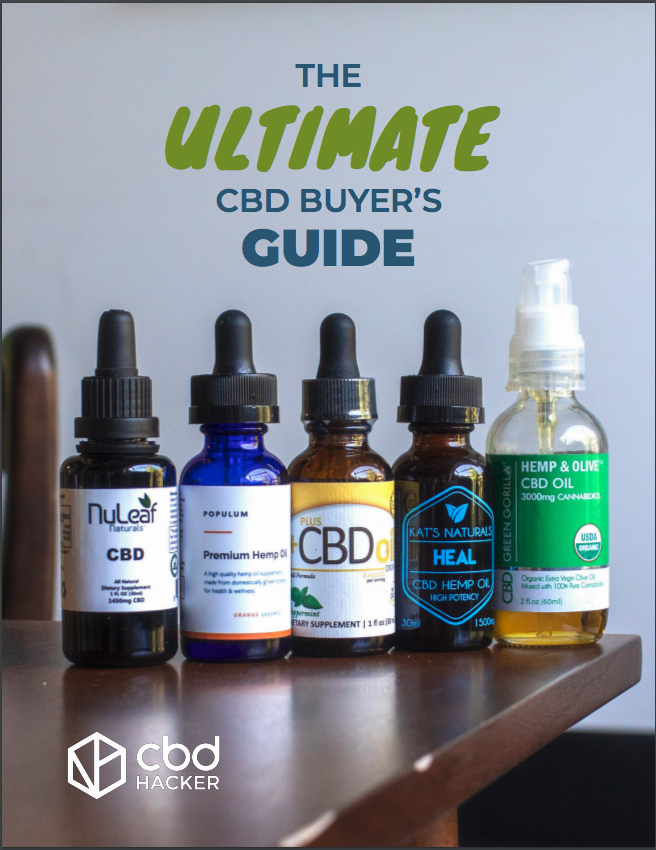When shopping online, most of us just want to stick our credit card information into the boxes, press “purchase,” and let the magic happen. We don’t generally need to know what’s going on behind the scenes until things get a bit glitchy.
But sometimes an industry just calls attention to itself.
Maybe your bank has declined a CBD oil purchase because it appears that it was made overseas. Or maybe you felt the subterranean panic of the CBD industry when a major merchant processor recently announced it would stop processing payments for CBD companies.
Whatever it was that piqued your interest, the reality is that this aspect of the CBD industry is just confusing to most people outside the industry. (And truthfully, it’s pretty baffling for many on the inside as well.)
So what’s the deal with CBD payment processing, and how does it affect you, the CBD consumer? We consulted experts that serve different aspects of the industry for their take. Read on for answers!
Banking CBD: What’s the Problem?
First, let’s dispel a myth.
There’s a broadly held conception that the hemp and cannabis industries are largely unbanked, with massive amounts of money sitting around, presumably in the mattresses of CEOs.
This is false for both the hemp and marijuana industries, according to Tyler Beuerlein, VP of Business Development at Hypur, a regulatory compliance technology company that helps banks serve the hemp and cannabis industries. “It’s presented that way in the media far too often, but the vast majority of licensees nationwide have a transparent banking relationship.”
But while CBD companies are able to find banks that will provide them with business accounts, they have a much harder time finding domestic merchant processors.
For any business that wants to accept credit or debit cards, merchant processors are indispensable. They are the go-betweens that facilitate the movement of money from a customers’ credit card company to a business’s bank account.
What happens when a CBD company doesn’t have a merchant processor? Basically, consumers can’t use their debit or credit cards to make purchases on their website. Obviously, that’s a big problem.
But why should CBD companies have trouble finding merchant processors now that CBD is federally legal?
Best CBD Oils
Looking for the best CBD oils out there? These are just a few examples of trusted brands that we’ve fully vetted for quality:
Or, you can check out our full ranking of the 20 Best CBD Oils for 2019.
The Farm Bill and the Promise of Domestic Payment Processing
When the 2018 Farm Bill passed, there was hope that the newly acquired legal status of CBD would make payment processors open their doors en masse to the CBD industry.
And in fact, things looked promising when Elavon, a major domestic merchant processor (and US Bank subsidiary) got in on the action early, announcing that it would start providing payment processing for the CBD industry.
Then in April, mere weeks after getting started, they quickly jumped ship. They announced that their CBD clients had 45 days to find alternative payment processors.
What happened in the intervening weeks has been the fodder of many a news story. The details aren’t clear, since Elavon isn’t saying much. But it appears that their foray into CBD pretty neatly illustrates what many merchant processors fear about the CBD industry.
CBD: A Legal but High-Risk Industry
So what is making merchant processors leery of dealing with the CBD industry?
Basically, there are a lot of rules around the production and sale of hemp-based CBD. Merchant service providers need to follow (and ensure their clients are following) these rules in order to stay on the right side of the law.
Secondly, the FDA is still working out CBD’s regulatory framework. That means that many of those regulations aren’t even clear yet! This adds a second (scary) layer to the already high-maintenance nature of the CBD industry from a payment processor’s point of view.
CBD and the Supplements Industry
And that’s not all.
CBD is also part of the already occasionally dodgy world of nutritional supplements. Josh Delaney, founder of Fab CBD, has extensive experience in the world of supplements generally and CBD specifically. Here’s his take:
“There have been a lot of bad actors in the supplements industry, from the fat burning era, the thermogenic era, or the buyer sample bottle (which ends up being a subscription to a product). So CBD comes along and it’s not clearly regulated, it’s not fully legal in every state, nothing is consistent across the country, and merchant processors are scared of it.”
And what are they most afraid of? According to Delaney, a major issue is chargebacks.
Have you ever contacted your credit card company because a product you ordered wasn’t delivered or wasn’t what you ordered? If so, and your credit card refunded your money, you initiated a chargeback against the company you purchased from.
This, combined with the unclear regulatory future of CBD, doesn’t make it an easy industry to serve from a payment perspective.
We talked to cannabis banking expert Steve Schain of Hoban Law Group, who summed up CBD’s payment processing situation pretty succinctly: “Banks only care about two things: profitability and risk they can manage. Getting a bank account is actually pretty easy. But when it comes to payment processing, there’s a different level of criteria, and one of them is: if CBD is not illegal is it high-risk?”
From the perspective of payment processors, the answer is a definite “yes.”
The Bottom Line: Consumers Pay the Price
So what’s the bottom line of all this from a consumer perspective?
There are only a few domestic options for CBD payment processing right now. This leads most CBD companies to look abroad for their payment processing solutions.
According to Delaney, these international payment processors often charge CBD companies between four and ten percent of every transaction. Those costs are certainly being passed on to consumers.
The fact that these payment processors are overseas may also cause your bank to decline your CBD purchase. That’s because it looks fraudulent to them. This is pretty annoying from a consumer standpoint, as well as being confusing when you know you’re buying from a domestic CBD business.
And according to Stephen Ryan of Infinite CBD, there is always the danger of a CBD company’s being dropped at any moment (as happened with Elavon’s clients in April). “Some are nice enough to give notice, but that’s not always the case. When we lose our payment processing, we risk the chance of not being able to serve our customers.”
Legislating the Solution?
But hemp and cannabis are not without political champions in public office. Last year, Senators Elizabeth Warren and Cory Gardner introduced The STATES Act, which would explicitly recognize state legalization of cannabis.
This bill has broad bipartisan support. If it passes, it could potentially help lower the compliance burden of financial institutions serving the cannabis space.
But according to Steve Schain, the legislation isn’t going to be a magic fix for the CBD (or marijuana) industry’s payment processing woes:
“It could be somewhat helpful, but would it be materially helpful? The STATES Act would kick it back to each state to make their own rules about banking. That’s somewhat helpful. But you’re still a bank so you’re still worried about the FDA.”
When it comes to banking and merchant services for the CBD industry, there are a lot of factors in play. And a new law won’t address every issue.
Schain explains, “It’s like a seating plan for your Thanksgiving dinner. Uncle Pete can’t sit next to Aunt Mary, uncle Lou needs to sit near the bathroom…there are just a lot of weird vagaries that make this very complex.”
The Future of CBD Payments
On the other hand, there are signs that domestic payment processors aren’t entirely abandoning the CBD industry. Square, a domestic merchant processor, recently began quietly approaching some of the biggest CBD brands to initiate a pilot program for payment processing.
And Hypur is also offering alternative payment solutions to CBD companies. They facilitate direct, bank-to-bank transactions between consumers and CBD companies.
Meanwhile, CBD companies continue to navigate the often messy, confusing world of payment processing, finding ways to get their products to consumers.
Hopefully, this will get easier over time. But Josh Delaney isn’t expecting a quick turn around. “It’s going to take a while and it’s going to be bite-sized chunks. Everyone’s expecting big announcements, and it’s going to be little announcements. It’s going to take a few years.”






